


















Welcome to the inaugural hybrid Rhodes Policy Summit. This year the theme is: Creating a Positive Legacy from the Pandemic. We will be exploring the important and innovative concept of using an ‘Always On’ approach to pandemic preparedness - considering what it will take for governments and societies across the world to stay in a state of readiness which would allow for a swift and effective way to combat a future pandemic threat. This Summit comes at a time when the devasting impact of the COVID-19 pandemic is still fresh in our minds, but with a real risk that this opportunity to reflect, take stock of the lessons learnt from the pandemic and prepare better for the future might be missed.
We have been hugely privileged to be able to have the Global Health Security Consortium as a knowledge partner for this event. The depth of experience and expertise gathered together for this Summit demonstrates the passion so many individuals and organisations have for ensuring that lessons learnt during the pandemic are shared globally, embedded in our systems and processes and will enable us to be in the right place to tackle the next time we face a crisis.
The Policy Summit’s programming efforts have focused on an interdisciplinary approach, with a wide variety of geographies and sectors represented amongst the speakers and attendees. This bringing together of people across traditional boundaries is something we focus on within the wider work of the Rhodes Trust. It always leads to new ideas and solutions and I am sure that will also be true today.
I particularly want to thank our Rhodes Chair of Trustees, Professor Sir John Bell, for his leadership during the pandemic and his continued commitment to ensuring the world is better prepared. There is no one better qualified to open the Summit today. Warm thanks also go to Philip Ma for his leadership support for this event and his contributions on the programme’s Advisory Board. We would also like to acknowledge the rest of our exceptional advisory board led by Professor Sir John Bell: Dr Trevor Mundel, Dr Tariro Makadzange, Tamsin Berry, and Dr Robert Madsen. It is fantastic to have both in-person and virtual attendees joining us today, and I hope the ‘Always On’ approach can offer a truly effective and impactful approach to future pandemic threats.
Enjoy all the Policy Summit has to offer!
Dr Elizabeth Kiss Warden of Rhodes House & CEO of the Rhodes Trust
Welcome to the inaugural Rhodes Policy Summit, which will consider how collectively we can strengthen our preparedness for the next pandemic. It is very much a question of ‘when’ not ‘if’ another pandemic will take place. Our global interconnectedness, as well as continued sharing of pathogens between humans and animals, and the impact of climate change on animal and human habitats and disease distribution all contribute to this ever-present risk.
We are now well positioned to take stock of the early days of the COVID-19 pandemic and reflect on what can and should be put in place now to allow us to be better prepared in future. With the Global Health Security Consortium as our knowledge partner, I am particularly excited that we are able to explore the potential of healthcare systems to be in a constant state of readiness for a new pandemic. This concept of being 'Always On' suggests that we should look at global health infrastructure with two purposes – how we can effectively improve routine healthcare delivery whilst being prepared to deliver a pandemic response effectively and at speed.
Applying this 'Always On' approach to vaccine delivery, for example, means thinking about new investments in regional vaccine
manufacturing capacity. We will need to consider how we establish infrastructure to produce life-course vaccines for diseases of public health significance, that can pivot when needed to produce vaccines against a new pandemic. As a global health concept, 'Always On' has as its foundation a motivation to create a more effective and equitable pandemic response and avoid the devasting impact that we saw during COVID-19 when many parts of the world were unable to access life-saving technologies.
I hope that by this end of the Policy Summit, we will have outlined a series of initiatives that explore applying this 'Always On' concept to pathogen surveillance, digital infrastructure, vaccine delivery and clinical research infrastructure. With our audience of global health and policy leaders, I am confident that we will be able to make progress on this ambitious agenda.
More broadly, I hope that as this Summit brings together experts from different areas of expertise and regions of the world, we will find fruitful opportunities to connect and to build new relationships and communities. Do be bold in imagining what could be possible, and thank you for giving your energy and ideas to this hugely important Summit.
Philip Ma CEO and Founder, PrognomiQ, Inc. Policy Summit advisory board member and program supporter
09:00 Refreshments, Check-in and Mingle
10:00 Welcome and Introduction to the ‘Always On’ agenda for the Summit
Professor Sir John Bell Alberta & Magdalen 1975
Regius Professor of Medicine, University of Oxford & Chair of the Rhodes Trustees
10:15
Geopolitics and the COVID-19 pandemic response: How do we keep political attention and drive action on the Pandemic Prevention agenda?
Tony Blair
Executive Chairman, the Tony Blair Institute for Global Change and Former Prime Minister of Great Britain and Northern Ireland
10:30
Pandemic Reflections:
Perspectives on the early days of COVID-19
Dr Jessica Davis
Associate Research Scientist, Northeastern University
Professor George Fu Gao
Professor, Chinese Center for Disease Control and Prevention
11:30 Comfort Break
Dr Merawi Aragaw
Tegegne
Head of Division for Health
Emergency Preparedness and Response, Africa CDC
Professor Ngaire Woods
New Zealand & Balliol 1987
Dean, Blavatnik School of Government, University of Oxford
Moderator: HeleneMari van der Westhuizen
Paul Roos Gymnasium, Stellenbosch & Green Templeton 2018
Global Health Fellow, Rhodes Trust & Global Health Security
11:45 Pandemic forecasting modelling: How would the world fare with a new pandemic today?
Rasmus Bech Hansen
CEO, Airfinity
12:15
Dr David Agus
Founding Director and CEO, The Lawrence J. Ellison Institute for Transformative Medicine
Professor Prabhat Jha
Prairies & Magdalen 1987
Professor of Global Health, University of Toronto
13:00 Break for Lunch - Riverside Room
14:00 Parallel breakout room discussions:
Dr Lynda Stuart
Executive Director of the Institute for Protein Design, University of Washington’s School of Medicine
Moderator:
Professor Dame Anna Dominiczak
Regius Chair of Medicine, University of Glasgow & Chief Scientist (Health), Scottish Government
KELVIN HASLETT FLOWERS
Strengthening global clinical research infrastructure for use during peacetime and pandemics
Dr Tariro Makadzange
Prairies & Magdalen 1987
Founder and CEO, CRMG and Mutala Trust
Dr Trevor Mundel
President of Global Health, Bill & Melinda Gates Foundation
Dr Amadou Sall
Director, Institute Pasteur, Senegal
Moderator:
Tamsin Berry
Co-Founder and Partner, Population Health Partners
15:30 Comfort Break
16:00 Closing Plenary
Supporting public trust in science and pandemic policy delivery
Sarah Hess Health Emergencies Programme, World Health Organization
Mia Malan
Editor-in-Chief, Bhekisisa
Centre for Health Journalism
Dr Tanvi Rai
Health inequalities researcher, Oxford University
Eloise Todd
Executive Director & Co-Founder, Pandemic Action Network
Moderator:
Emily Stanger Sfeile
Executive Director, Strategic Partnerships and Initiatives, Tony Blair Institute
Market shaping to support access to essential pandemic tools
Hala Audi
CEO, Unizima
Dr Sergio Carmona
Chief Medical Officer, Find
Dr Richard Hatchett
CEO, CEPI
Dr Zhi Yang
Chairman, BVCF Investment Fund
Moderator:
Dr Gabriel Seidman
Director of Policy, The Lawrence J. Ellison Intsitute for Transformative Medicine
Dr Hannah Kettler
Director (Acting) for COVAX Design & Operationalisation, Gavi
Professor Sir Andrew Pollard
Professor of Paediatric Infection & Immunity, University of Oxford
Professor Glenda Gray
President & CEO, South African Medical Research Council (SAMRC)
Moderator: Hannah Kuchler
Global Pharmaceutical Correspondent, Financial Times

Oxford
A welcome to the Rhodes Policy Summit from the Chair of the Rhodes Trustees and Regius Professor of Medicine at Oxford University, Professor Sir John Bell (Alberta & Magdalen 1975).
Executive Chairman, the Tony Blair Institute for Global Change, and Former Prime Minister of Great Britain and Northern Ireland
When COVID-19 struck every nation was unprepared. Our ability to fight back came from the integrity of science and technology. But three years on we face some uncomfortable truths. As a global community we're still unprepared for the next pandemic.
And as memories begin to fade and new global pressures continue to grow, maintaining political and public focus on Pandemic Preparedness and Response (PPR) is becoming increasingly difficult.
In this keynote address, Tony Blair will set out how the creation of a new global health system that is 'Always On' will help to secure long-term political commitment and investment into PPR. By using key capabilities like digital infrastructure, disease surveillance and R&D and manufacturing infrastructure to improve everyday healthcare delivery, we can create an economically viable system that improves day-to-day patient care and remains ready to rapidly pivot to deliver an effective future pandemic response.
Because COVID-19 will not be the last pandemic threat we face, and we cannot afford to be unprepared again.
Professor
George Fu Gao Professor, Chinese Center for Disease Control and Prevention Dr Merawi Aragaw Tegegne Head of Division for HealthEmergency Preparedness and Response, Africa CDC
Professor Ngaire Woods
New Zealand & Balliol 1987
Dean of the Blavatnik School of Government, University of Oxford
Moderator: Helene-Mari van der Westhuizen
Paul Roos Gymnasium, Stellenbosch & Green Templeton 2018
Global Health Fellow, Rhodes Trust & Global Health Security Consortium
Panellists will share reflections on the early days of the COVID-19 pandemic. What can we infer about the inception of the COVID-19 pandemic from cryptic transmission? How do early policy responses compare across different countries? And what were the underlying reasons for the collective failure to fast-track access to life-saving technologies for the most vulnerable populations during this time of crisis?
11:45 | KELVIN LECTURE THEATRE
 Rasmus Bech Hansen CEO, Airfinity
Rasmus Bech Hansen CEO, Airfinity
In this session we will look towards the future and consider the worst-case pandemic scenarios the world needs to be prepared for. With new modelling that considers different case fatality rates and transmissibility scenarios, this session will present multiple scenarios to prepare for and deliver a clear call for sustained political focus and investment from governments, global health organisations and industry into pandemic preparedness.
Moderator:
Professor Dame Anna Dominiczak
Regius Chair of Medicine, University of Glasgow & Chief Scientist (Health), Scottish Government
During the COVID-19 pandemic, essential infrastructure was lacking – including global digital infrastructure and distributed manufacturing capacity to support large-scale access to vaccination, therapeutics and diagnostics. Although some of these vital capacities did eventually catch up with the surge in demand, time and lives were lost because of the stop-start nature of the response. This gap is avoidable: knowing that it is feasible to ramp up certain capacities within the short term, we must ensure a seamless transition from routine healthcare to pandemic preparedness by focusing on the long-term, standing capacities that are otherwise difficult to develop. This is the rationale for the ‘Always On’ approach: it considers what has been developed for the COVID-19 pandemic, and its application to routine healthcare delivery, to ensure vital pandemic response infrastructure remains economically viable and ready to respond to the next global health crisis. Our panellists will discuss how this sustainability must also be linked to more equitable access to essential pandemic response tools.
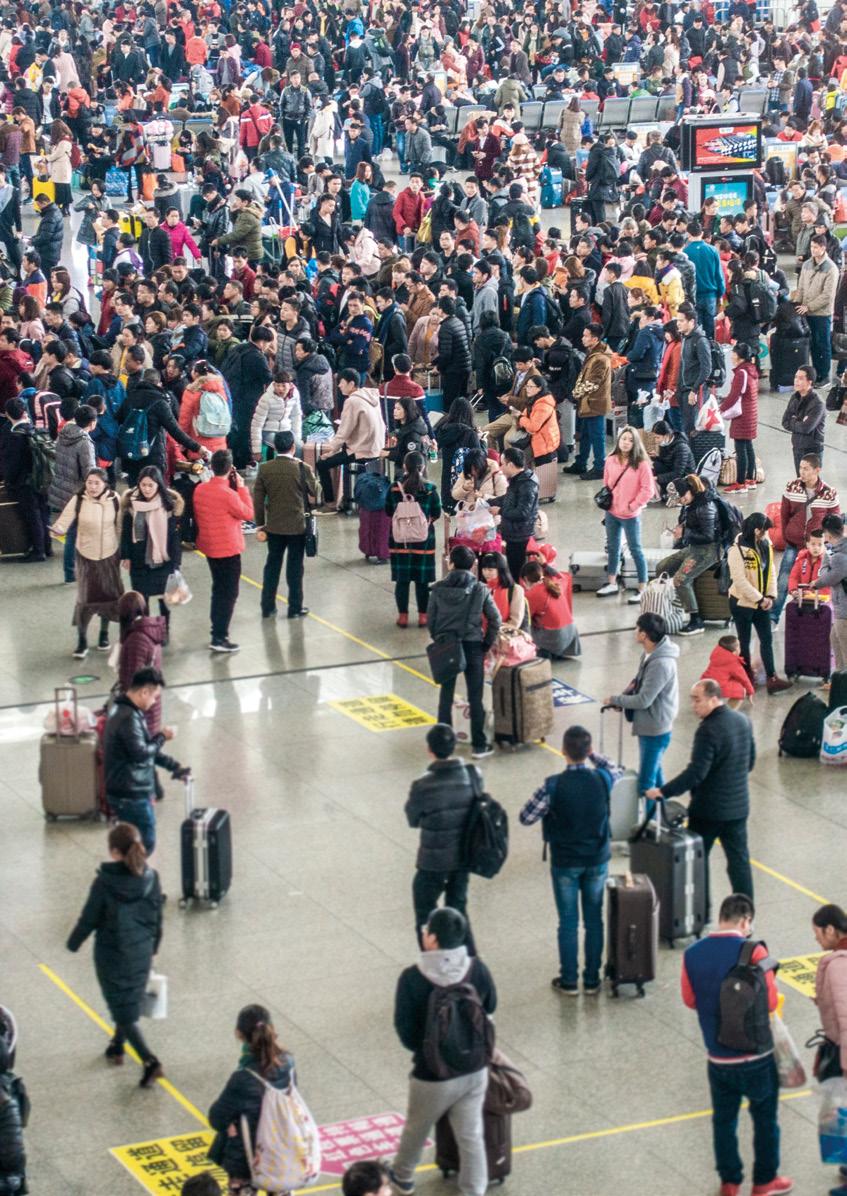
Dr Tariro Makadzange
Founder and CEO, CRMG and Mutala Trust
Dr Trevor Mundel
President of Global Health, Bill & Melinda Gates Foundation
Dr Amadou Sall
CEO, Institut Pasteur, Senegal
Moderator: Tamsin Berry
Co-Founder and Partner, Population Health Partners
COVID-19 highlighted the vital role clinical research plays. Innovative platform trials demonstrated the efficacy of treatments and the rapid delivery of vaccine trials resulting in the fastest development, regulatory approval and rollout of vaccines in history – saving millions of lives. However, clinical research capacity remains overly concentrated in high-income countries. During this policy deep dive, we will focus on how to support the development of sustainable clinical research capacity in low- and middle-income countries, as part of essential pandemic preparedness infrastructure.
14:00
|
Dr Tanvi Rai
Senior Researcher, University of Oxford
Eloise Todd
Executive Director &Co
Founder,Pandemic Action Network
Sarah Hess Health Emergencies Programme, World Health Organization
Moderator: Emily Stanger Sfeile
Executive Director, Strategic Partnerships and Initiatives, Tony Blair Institute for Social Change
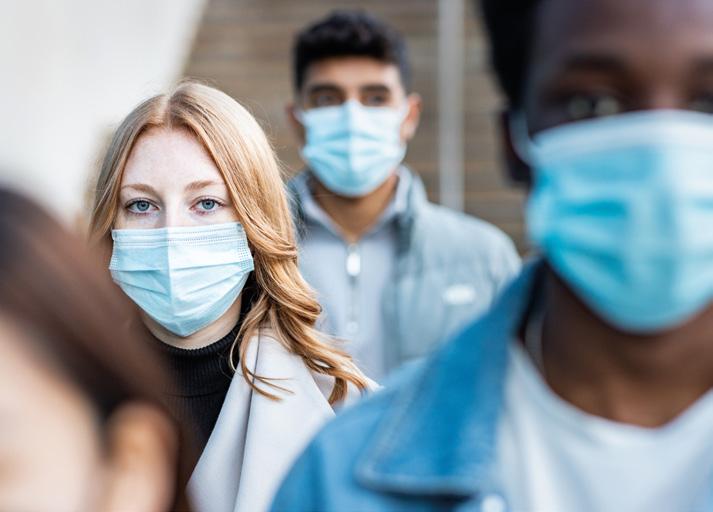 Hala Audi CEO, Unizima
Dr Sergio Carmona Chief Medical Officer, FIND
Dr Richard Hatchett CEO, CEPI
Dr Zhi Yang
Chairman, BVCF investment fund
Hala Audi CEO, Unizima
Dr Sergio Carmona Chief Medical Officer, FIND
Dr Richard Hatchett CEO, CEPI
Dr Zhi Yang
Chairman, BVCF investment fund
Moderator: Dr Gabriel Seidman
Director of Policy, The Lawrence J. Ellison Institute for Transformative Medicine
There has been a co-ordinated effort, particularly for vaccines, to develop distributed manufacturing capacity in response to gross failures in achieving equitable access to essential COVID-19 pandemic tools. A key question is how to make sure these investments are fully utilised in the interpandemic period. Economic models that support innovation and develop markets for vaccines, diagnostics and therapeutics in peacetime for other diseases of public health concern is one strategy. In this panel we will consider widespread use of distributed manufacturing capacity, and also look at key learnings from the COVID-19 pandemic about facilitating product pullthrough and accelerated access to novel technologies.
Professor Sir Andrew Pollard
Professor of Paediatric Infection & Immunity, University of OxfordProfessor Glenda Gray
President & CEO, South African Medical Research Council (SAMRC)
Moderator: Hannah Kuchler
Global Pharmaceutical Correspondent, Financial Times
All countries were insufficiently prepared for the COVID-19 pandemic, at the cost of millions of lives and trillions of dollars. In closing, our panellists will discuss what needs to be put in place to move some of the key ‘Always On’ principles discussed during the Summit forward. This will include partnerships that will be needed, protentional levers for action and resources to enable delivery.

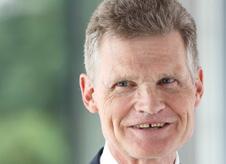
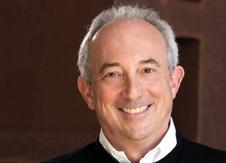
Alberta & Magdalen 1975
Regius Professor of Medicine, University of Oxford
Dr David B. Agus is one of the world's leading doctors and pioneering biomedical researchers. He is the founding director and CEO of the Lawrence J. Ellison Institute for Transformative Medicine and a professor of medicine and engineering at the University of Southern California. A medical oncologist, Agus leads a multidisciplinary team of researchers dedicated to the development and use of technologies to guide doctors in making healthcare decisions tailored to individual needs. An international leader in global health and approaches for personalised healthcare, David serves in leadership roles at the World Economic Forum and is co-chair of the Global Health Security Consortium.
Hala is the CEO of Unizima, part of Belgian life sciences group Univercells. Unizima is a biomanufacturing services and technology provider, providing the expertise and cuttingedge technology needed to enable sustainable production of biologics such as vaccines, monoclonal antibodies and insulin in emerging markets. Hala joined Unizima from a career in government and global public health, including heading the pioneering UK review on antimicrobial resistance, chaired by Jim O’Neill. She has also been a senior leader in the UK Treasury Department and the Infrastructure and Projects Authority where her role focused on modernising delivery of the government’s major projects and portfolio including through modularised construction. Earlier in her career she was an international arbitration lawyer with US law firm Skadden, Arps in New York and London.
Professor Sir John Bell GBE, FRS is Regius Professor of Medicine at Oxford University. President of the Academy of Medical Sciences (2006 to 2011); Chair, Office for the Strategic Coordination of Health Research until 2017; Chair, Rhodes Trust; UK Life Sciences Champion since 2011. Appointed Knight Grand Cross of the Order of the British Empire (GBE) in 2015 for services to medicine, medical research and the life science industry. Co-developed and wrote both 2017 UK Life Sciences Industrial Strategy and 2021 Life Sciences Vision providing recommendations to HM Government on ensuring the long-term success of the life sciences sector.

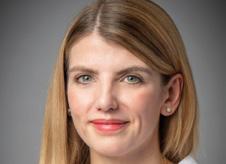
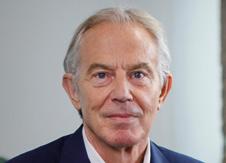
and all of this took place during a period of record economic growth and levels of employment.
Tamsin has extensive experience in government and expertise in public policy. She lead serology and prevalence studies for the Government at the start of the COVID-19 Pandemic and as the former Director of the UK government’s Office for Life Sciences she worked with Professor Sir John Bell to write the UK’s Life Sciences Industrial Strategy. This led to £3 billion of investment into UK biotech across a number of public and private partnership projects. Tamsin held a number of leadership positions in government, spanning policy, corporate and communications roles including at the Cabinet Office, Department of Health and Public Health England. She began her career in consultancy at Accenture.
The Rt Hon Tony Blair, former Prime Minister of Great Britain and Northern Ireland, Executive Chairman of the Tony Blair Institute for Global Change. Tony Blair served as Prime Minister of Great Britain and Northern Ireland from 1997 to 2007 – the only Labour leader in the party’s 100-year history to win three consecutive elections.
During his time in Downing Street Tony Blair implemented a major domestic reform agenda. Through record investment and reform, the UK’s education and healthcare sectors were transformed. The New Labour Government led by Tony implemented the largest hospital and school building programme since the creation of the UK’s welfare state. Overall crime was reduced by a third, and the first ever national minimum wage was introduced. There was also transformational progress on human rights and equality
As Prime Minister, Tony Blair was also a central figure on the global stage. He helped bring peace to Northern Ireland, securing the historic Good Friday Agreement in 1998. He was a passionate advocate of an interventionist foreign policy. Tony created the Department for International Development, tripled the UK’s foreign aid to Africa, and introduced landmark legislation to tackle climate change.
Since leaving office Tony Blair has spent most of his time working on three areas: supporting governments to deliver effectively for their people, working for peace in the Middle East, and countering extremism. He established the Tony Blair Institute for Global Change to work on some of the most difficult challenges in the world today, believing that real leadership has never been more necessary or more difficult.
Associate Research Scientist, Northeastern University
Regius Chair of Medicine, University of Glasgow & Chief Scientist (Health), Scottish Government
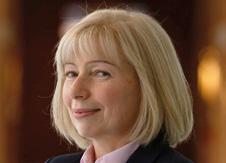
Sergio Carmona is a global health leader, an MD PhD specialising in pathology. Following a distinguished career at the University of Witwatersrand (Johannesburg), he joined FIND in 2019, and in 2021, became the Chief Medical Officer. At FIND he covers a wide R&D portfolio for priority diseases, including tuberculosis, malaria, hepatitis, NTDs, AMR and NCDs, including HPV testing for early screening of cervical cancer. He is motivated by improving access to affordable diagnostics in LMICs. On the emergence of the COVID-19 pandemic, FIND was named co-convener of the Diagnostics Pillar of the Access to COVID-19 Tools (ACT) Accelerator, in which Dr Carmona has played an instrumental role. Prior to joining FIND, Dr Carmona spent over a decade at the National Health Laboratory Services in South Africa, where he focused on molecular diagnostics and treatment monitoring for HIV, EID, HIV drug resistance and associated co-infections.
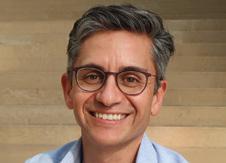
Jessica Davis is an Associate Research Scientist in the Laboratory for the Modeling of Biological and SocioTechnical Systems at Northeastern University. Her research combines network science methods with datadriven epidemic modeling to respond to emerging infectious disease outbreaks. Her work aims to inform public health policies and enhance preparedness for future outbreaks by bridging the gap between theory and practice. She received her PhD in Network Science from Northeastern University, where she investigated the impact of cryptic transmission and travel restrictions during the early stages of the COVID-19 pandemic.
Professor Dominiczak is a world-leading cardiovascular scientist and clinical academic. She has published extensively in top peer-reviewed journals. Between 2010 and 2020 she was Vice-Principal and Head of the College of Medical, Veterinary and Life Sciences at the University of Glasgow. In March 2020, Anna led the establishment of Lighthouse Laboratory in Glasgow to provide rapid COVID–19 diagnostics, and then was asked to become Director of Laboratories at the UK Department of Health and Social Care to lead all 10 Lighthouse Laboratories across the UK, the role she fulfilled until 2022.
In July 2022 she was appointed as a Chief Scientist (Health) for the Scottish Government. She works with the Chief Scientist Office to formulate and implement research and innovation strategy with a focus on transformative innovations to improve health of Scottish communities.
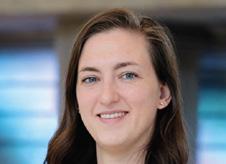
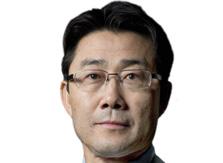
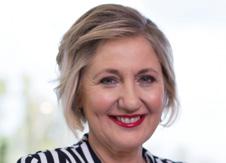
President and CEO, South African Medical Research Council (SAMRC)
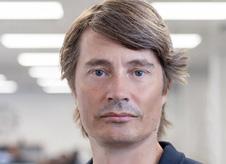 CEO & Founder, Airfinity
CEO & Founder, Airfinity
Gao is the former directorgeneral of China CDC (2017-2022) and former vicepresident of the National Natural Science Foundation of China. He is a member (academician) of the Chinese Academy of Sciences (CAS), an international member of the US National Academy of Sciences (NAS), a foreign member of the UK Royal Society (RS), and a member of the German National Academy of Sciences Leopoldina. He is the director of WHO and a professor of the Institute of Microbiology, CAS. Gao has pioneered and made numerous significant original breakthroughs on the pathogenesis mechanisms and pathogenhost interaction of emerging infectious pathogens. His interests also include global public health and health strategy, and he is is an advocate of international collaboration in global public health.
An NRF A1 rated scientist, CEO and President of the South African Medical Research Council (SAMRC), Professor Glenda Gray is a qualified paediatrician and co-founder of the internationally recognised Perinatal HIV Research Unit in Soweto, South Africa. Prior to her appointment at the SAMRC, she was the Executive Director of the Perinatal HIV Research Unit, an affiliate of Wits University. Glenda’s global profile includes a role as Co-PI of the HIV Vaccine Trials Network (HVTN), an international collaboration for the development of HIV/ AIDS prevention vaccines. She has served as a Protocol Co-Chair of the multi-country Ensemble Study investigating the single-dose Ad26.COV2.S vaccine as an emergency response intervention. She received South Africa’s highest honour – the Order of Mapungubwe – for her pioneering research in PMTCT.
Rasmus is a globally recognised expert on scientific information and knowledge dissemination. He spent his earlier career as a Fortune500 strategist. Rasmus is a strong believer in the power of accurate information and new ideas – he founded his first, short lived, newspaper at the age of 13 – a passion that drove him to found Airfinity. As CEO of Airfinity he is often quoted in leading media companies such as the Financial Times, Bloomberg and CNN. He is a board member of the newspaper group, Information.dk. Rasmus holds a BSc in Political Science, a MPA from Harvard University and is a recipient of the Crown Prince Frederic award for excellent scholarship. He lives in London.
Prairies & Magdalen 1987
Professor of Global Health, University of Toronto
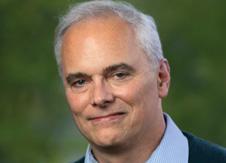
Richard J. Hatchett, MD, is Chief Executive Officer of the Coalition for Epidemic Preparedness Innovations, or CEPI – a global partnership that supports the swift development of and equitable access to new vaccines and other defences against infectious diseases with epidemic and pandemic potential. Dr Hatchett’s and CEPI’s plan is for the world to neutralize those pandemic threats with prescient investment in scientific R&D. Before taking on the CEPI leadership just after its launch in 2017, Dr Hatchett was Acting Director of the U.S. Biomedical Advanced Research and Development Authority (BARDA). He has also served under two U.S. Presidents – George W. Bush and Barack Obama – as Director of Medical Preparedness Policy on the Homeland and National Security Councils.
A global public health expert, working for the World Health Organization since 2014, focusing on global health policy, multisectoral partnerships and communication and trust during crises. Her current portfolio includes building multisectoral partnerships for enhanced epidemic and pandemic preparedness and prevention, leading a multidisciplinary initiative to define and measure trust in the context of pandemics, and building an innovative digital solution to increase access to credible health information during highimpact public health events.
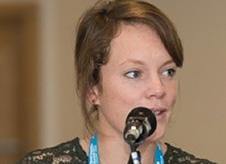
Prabhat Jha is a Professor at the University of Toronto, Endowed Professor in Global Health and Epidemiology and Canada Research Chair at the Dalla Lana School of Public Health, and the founding Director of the Centre for Global Health Research at St. Michael's Hospital.
Professor Jha is the lead investigator of the Million Death Study in India, which quantifies the causes of premature mortality in over three million homes from 1998 to the present day. His publications on tobacco control have enabled a global treaty now signed by over 180 countries. He founded the Statistical Alliance for Vital Events, which focuses on reliable measurement of premature mortality worldwide.
Earlier, Professor Jha served in senior roles at the World Health Organization and the World Bank. He was made an Officer of the Order of Canada in 2012. Professor Jha holds an MD from the University of Manitoba and a DPhil from Oxford University, where he studied as a Rhodes Scholar.
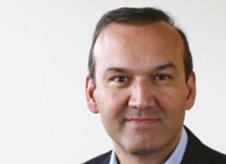
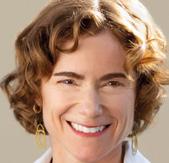
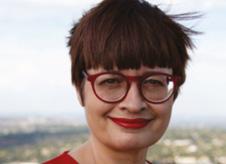

Dr Hannah Kettler is a global expert in corporate social innovation, and acting Director for COVAX Design and Operationalisation at Gavi, the Vaccine Alliance. She oversees the policy design and operationalization of the COVAX Facility and the establishment of a dedicated Health Security function to deepen Gavi’s engagement in responding to outbreaks, epidemics and pandemics, building on Gavi’s current role and experience. Previously, Dr Kettler worked as Director for Vaccine Financing and Partnerships at PATH and at the Bill & Melinda Gates Foundation, most recently as Head of Industry and Leadership Engagement. In this role, she managed the Gates-CEO Roundtable. Hannah is a recognised authority and published author on policy incentives and partnership models to mobilise corporate investment in global health. She has a PhD in Economics from the University of Notre Dame.
Hannah Kuchler is the global pharmaceuticals correspondent for the Financial Times, leading the business newspaper’s coverage of the life sciences industry. She has reported on the COVID-19 pandemic, receiving an honourable mention at the Society for Advanced Business Editing and Writing awards for a feature she led on the Pfizer vaccine. In the US, Kuchler collaborated with PBS Frontline on a documentary about the opioids crisis, which was nominated for an Emmy and won a Loeb award. Before covering the life sciences industry, she was a technology correspondent in Silicon Valley. She has worked for the FT for thirteen years in London, Hong Kong, New York, and San Francisco.
Mia Malan is the founder and editor-in-chief of Bhekisisa. She has worked in newsrooms in Johannesburg, Nairobi and Washington, DC, winning more than 30 awards for her radio, print and television work. A former Knight International Journalism Fellow and a Reuters Institute Journalism Fellow, Mia speaks internationally about health issues in Africa and media sustainability in the Global South. Mia has published widely in books and academic journals, including the Brown Journal of World Affairs and the Georgetown Journal of International Affairs. She was a TEDx speaker on how COVID-19 changed news reporting and regularly moderates panels for highlevel events.
 President of Global Health, Bill & Melinda Gates Foundation
President of Global Health, Bill & Melinda Gates Foundation
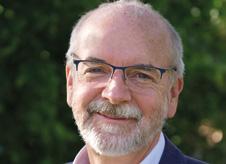
Tariro Makadzange is a medical-social entrepreneur, infectious disease physician and viral immunologist. Her career has spanned academia and industry in Africa and the United States. She is founder and CEO of CRMG and Mutala Trust in Zimbabwe. CRMG is a research organisation focused on diversifying research by including Africa and Africans in clinical trials and understanding immunogenetics in African populations including antibody discovery research for infectious diseases. Mutala Trust is a non-profit research organisation that conducts public health and implementation science research in communicable and non-communicable diseases. She is also an Adjunct Assistant Professor in Clinical Medicine at Stanford University and Faculty Fellow at the Stanford Center for Innovation in Global Health.
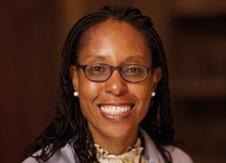
Trevor Mundel leads the foundation’s efforts to develop high-impact interventions to drive down the global burden of infectious diseases. He manages the foundation’s disease-specific R&D investments in malaria, HIV, tuberculosis, pneumococcal disease, enteric and diarrheal diseases and neglected tropical diseases. He also manages crosscutting product development programmes, including Discovery & Translational Sciences, diagnostic tools, Integrated Development, the Institute for Disease Modeling, and vaccine development. This work relies on close collaboration with a global network of grantees and partners. In 2018, Trevor spearheaded the creation of the Bill & Melinda Gates Medical Research Institute to address a critical gap facing the development of novel biomedical interventions for diseases that disproportionately impact those with the greatest need. Trevor was also responsible for leading the foundation’s early efforts to support the development of diagnostics, therapeutics, and vaccines for the global response to the COVID-19 pandemic.
Sir Andrew is the Ashall Professor of Paediatric Infection and Immunity based within the Department of Paediatrics at the University of Oxford. He is the Director of the Oxford Vaccine Group and an honorary consultant Paediatrician at Oxford Children’s Hospital. He received a knighthood in the Queen’s Birthday Honours in 2021 for services to Public Health, especially in the pandemic, and the James Spence Medal in 2022. He along with the Oxford Vaccine Team were awarded the Copley Medal in 2023.
 Dr Amadou Sall CEO, Institut Pasteur, Senegal
Dr Amadou Sall CEO, Institut Pasteur, Senegal
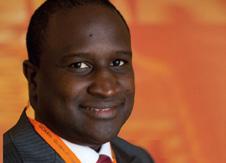 Moderator Director
Moderator Director
Tanvi Rai is a Senior Researcher in the Nuffield Department of Primary Care Health Sciences at the University of Oxford. Her research focuses on the social determinants of health and health inequalities, and explores how historicallyinformed and reflexive approaches that account for the structural and material realities of different populations, as well as the positionality of researchers in the generation of new knowledge, can lead to more robust and relevant health research.
Dr Amadou A. Sall is the CEO of Institut Pasteur de Dakar in Senegal and director of the WHO collaborating center for Arboviruses and viral hemorrhagic fever. He has been chairman of the Global Outbreak Alert and Response Network and a member of the Coalition for Epidemic Preparedness and Innovation (CEPI) Scientific Advisory Board. Dr Sall is a virologist with a PhD in Public Health. He is an expert in epidemics response and control more specifically for arboviruses and viral hemorrhagic fevers (Ebola, Zika, Yellow Fever…) and high consequence pathogens. Dr Sall is a member of several expert committees for WHO (GOARN, TDR, SAGE, STAG-IH…) and OIE. Dr Sall is the co-chair of the COVID 19 laboratory technical working group of Africa CDC and member of the Africa Union AFTCOR steering Committee as well as the Senegalese Committee for COVID-19. He is the chairman of the Pasteur Network.
Dr Gabriel Seidman leads the global and domestic public health work at the Ellison Institute and its partnership with the Global Health Security Consortium. He has lived and worked on public health issues with governments across Africa and with multilateral global health organisations, including the World Bank and the Global Fund. His research and work focuses on global governance for systems strengthening and digital tools to improve health outcomes. Gabriel holds a Doctorate of Public Health from Harvard T. H. Chan School of Public Health.
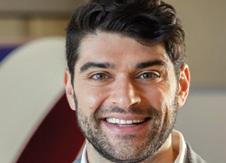
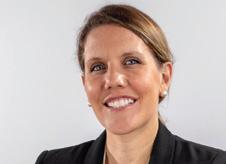
Executive Director of the Institute for Protein Design, University of Washington’s School of Medicine
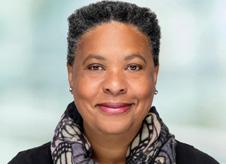
Head of Division for Health
Emergency Preparedness and Response, Africa CDC
Emily Stanger Sfeile is Executive Director, Strategic Partnerships and Initiatives. She drives the strategy and delivery of partnerships for the Institute, including TBI’s flagship work connecting tech innovators and leaders under the Tomorrow Partnership. Emily has worked closely with Heads of State for fifteen years advising on economic and social policy. Early in her career she was named to the Forbes 30 under 30 list for law and policy. She holds a Master's in International Development from Harvard University and degrees in Economics and Theology.
Lynda Stuart, MD, PhD. Lynda Stuart is a scientist, doctor, and passionate advocate for healthcare as a human right. Until very recently was the VP for Infectious disease at BioNTech but is leaving to pursue a senior leadership role at the University of Washington’s School of Medicine as the Executive Director of the Institute for Protein Design. She earned a PhD from the University of Edinburgh and an MD from the University of Cambridge and the University of London. Dr. Stuart has served on the Massachusetts General Hospital Executive Committee for Research and as an affiliate of the Broad Institute of Harvard and MIT. As the Deputy Director for Vaccines & Human Immunology at the Bill & Melinda Gates Foundation, she led a team that aims to source novel approaches and accelerate the discovery, development, and translation of new passive and active immunisation strategies for foundation priority diseases.
Dr. Merawi Aragaw Tegegne is Medical Epidemiologist and Head of Emergency Preparedness and Response Division at the Africa Centres for Disease Control and Prevention (Africa CDC). He has over fifteen years of experience in public health emergency and disaster risk management. He leads the establishment and operations of the Africa CDC rapid response surge capacities - the African Volunteer Health Corps. He’s a pioneer in the establishment of the Africa CDC; and served as a member of the multi-national expert committee of the African Union for the establishment of Africa CDC in 2014-2016.
Prior to his current post, Merawi served as Advisor to the Minister of Health of Ethiopia on public health emergency management for more than 6 years. He led and participated in different disease outbreak investigations and responses both nationally and internationally.
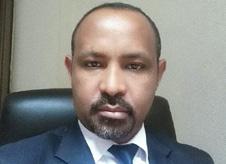
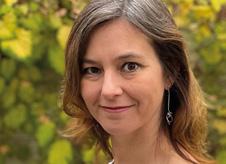
Paul Roos Gymnasium, Stellenbosch & Green Templeton 2018 Global Health Fellow, Rhodes Trust & Global Health Security Consortium
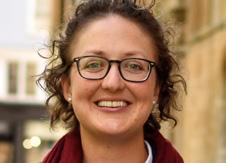
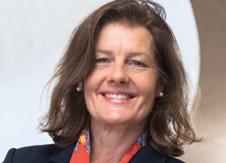
New Zealand & Balliol 1987
Dean of the Blavatnik School of Government, University of Oxford
Eloise Todd is a co-founder of Pandemic Action Network and an advocacy, policy, campaigns and strategy specialist. She has over 20 years' experience working to change legislation and budgets to improve lives. Primarily, she has worked in international development and global health, including as a political adviser within EU institutions and as Global Policy Director of the ONE Campaign. Eloise campaigned against the UK's Brexit deal, founding and building a pro-European organisation, Best for Britain, into a national campaign force. Eloise Co-founded Pandemic Action Network with 3 colleagues in April 2020, and took on the Executive Director role in August 2022. The Network fights to prevent future outbreaks becoming pandemics, and to work for equity in all areas of pandemic prevention, preparedness and response.
Dr Helene-Mari van der Westhuizen is a public health researcher and Fellow in Global Health with the Rhodes Trust and Global Health Security Consortium. She co-convenes postgraduate global health teaching at Oxford University. After training as a medical doctor in South Africa and working in the rural Eastern Cape, Helene-Mari completed her doctoral research at Oxford University funded by a Rhodes scholarship. Her research and evidence reviews on Tuberculosis and COVID-19 prevention have been relied on for national and international policy, and includes consultancy work for the World Health Organisation on infection control and TB diagnostics. Helene-Mari is passionate about science communication and has translated her research in live television interviews with the BBC and South African news, with her work featured in Nature and The Washington Post.
Professor Ngaire Woods is the founding Dean of the Blavatnik School of Government and Professor of Global Economic Governance at Oxford University. Her research focuses on how to enhance the governance of organisations, the challenges of globalisation, global development, and the role of international institutions and global economic governance. She founded the Global Economic Governance Programme at Oxford University, and co-founded (with Robert O. Keohane) the Oxford-Princeton Global Leaders Fellowship programme. She led the creation of the Blavatnik School of Government.
Dr Yang founded BVCF in 2005. He has over 20 years of China and US life sciences investment experience as a private equity investor, senior executive, entrepreneur and scientific inventor. As private equity investor, he has built portfolios of over 30 companies, with eight exits (4 IPO and 4 acquisitions). As entrepreneur, he co-founded seven companies, six of which continue to conduct business and grow. As scientist, he was the principal inventor of more than 10 US and international patents, which have been documented to have earned MNCs over $250 million. He was a senior fellow and faculty member at Rockefeller University and is now an advisor to the China Health and Medical Development Foundation, under China Ministry of Health. Dr Yang earned his PhD in Molecular Biology and Biochemistry at Harvard University as a fellow of CUSBEA first class, the first group of mainland Chinese biology scholars selected to be brought to the US after China opened its doors in 1979.

Should you have symptoms of a respiratory illness, or feel more comfortable attending group gatherings wearing respiratory protection – please feel free to use the masks provided at the registration desk. Please considering doing a lateral flow test in advance of the event, and if you test positive for COVID-19, we encourage you to join the Policy Summit online instead. The details to join online will be available on the conferencing app.
Please wear your name badge at all times – you will not be permitted access to the sessions in person without it. Staff members and volunteers can be identified by the label on their badges.
There is public access Wifi available at the venue.
Business casual, no tie. A self-manned cloakroom will be available near the registration desk.
If you have let us know about a specific dietary requirement and do not see something suitable being served at a meal, please do speak to a member of the catering team directly to receive your alternative option. Lunch and refreshments will be provided at the venue. Please bring your own bottle for drinking water: refill stations will be available throughout the venue.
A photographer and videographer will be present throughout the day and all sessions will be streamed for our online audience. Most of the sessions will also be recorded for viewing after the event. Please contact us in advance at conferences@rhodeshouse. ox.ac.uk if you have any questions regarding this. If you indicated during registration that you would not like to be photographed, you will be given a white lanyard upon arrival.
We highly encourage you to join the conversation on social media using the hashtag #PandemicPolicySummit. Rhodes Trust can be found on Facebook as @RhodesTrust, on Instagram as @rhodestrust and on Twitter as @rhodes_trust
We cannot guarantee any parking spots and therefore do not recommend arriving that way. Uber, Bolt and similar ride-sharing apps are available across London as well as classic Hackney Cabs. The nearest Tube stations are Embankment, Charing Cross and Temple, all within a ten-minute walk to the venue. We recommend using Google Maps, TfL, Go, or CityMapper to plan your journey.
FOLLOW THE CONVERSATION:
#PandemicPolicySummit
Rhodes Trust:
Sorina Campean
Susanna Griffiths
Richard Hughes
Pema I’Anson
Advisory Board:
Professor Sir John Bell
Alberta & Magdalen 1975
Tamsin Berry
Philip Ma
Saskatchewan & University 1986
Robert Madsen
Utah & Trinity 1985
Tariro Makadzange
Zimbabwe & Balliol 1999
Trevor Mundel
South Africa-at-Large & Balliol 1984
Babette Littlemore
Ben Russell
Tiffany Taylor
Georgie Thurston
Global Health Security
Consortium:
Dr David Agus
Megan Akodu
John Bell
Alberta & Magdalen 1975
Tamsin Berry
Prachetas Bhatnagar
Tony Blair
Paul Blakeley
Henry Li
Romina Mariano
South Africa-at-Large & Queen's 2016
Jay Sadanandan
Gabriel Seidman
Emily Stanger-Sfeile
Helene-Mari van der Westhuizen
Paul Roos Gymnasium, Stellenbosch & Green Templeton 2018
Helene-Mari van der Westhuizen
Paul Roos Gymnasium, Stellenbosch & Green Templeton 2018
Rachel Wood
Debbie Wray
Rhodes Scholar In
Residence Working Group:
Nina Acharya
Ontario & Somerville 2020
Carina Hong
China & Hertford 2022
Jesse Lafontaine
Prairies & Jesus 2022
Rachel Leung
Hong Kong & Green
Templeton 2021
Varad Puntambekar
India & Green Templeton 2022
Rhodes House, South Parks Road, Oxford OX1 3RG, United Kingdom
Tel: +44 (0)1865 270918 Email: conferences@rhodeshouse.ox.ac.uk
Web: www.rhodeshouse.ox.ac.uk